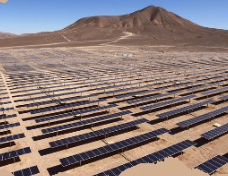Solar Power is a renewable source of energy that has a major potential. However, its unpredictable and intermittent nature causes deficits and surpluses in its energy flow over time. Energy Micro-web Storage Managerial (GEMA) optimizes the battery and electric grid usage, especially when solar power is the main source of energy, reducing the costs/ raising the incomes of the users by regulating the energy source. Simultaneously, it minimizes costs for administrators by optimizing production and storage chains This is accomplished by a Machine Learning algorithm that predicts surplus and deficits. GEMA automates decision-making and adapts over time to optimize battery and grid usage.
The invention consists of a multi-stage stochastic programming model for managing energy from variable sources in a microgrid when energy storage is possible. The objective of the model is to minimize the expected energy costs for the consumer. In a first step, the model decides for a full day based on historical data of solar radiation and household electricity consumption:
a) how much energy to obtain from photovoltaic panels, batteries, and from the grid;
b) how much energy to inject into the grid from photovoltaic panels and batteries;
c) how much energy to store in the batteries from photovoltaic panels and the grid.
In a second step, it is decided to sell to the grid the energy generated by the photovoltaic panels in case it has been underestimated in the first step or to buy energy from the grid in case it has been overestimated.
Advantages:
Optimal managerial system of energy
This system considers both, generation and demand uncertainty when it comes to make
a decision.
Optimizes production and energy storage.
Current development status
Working prototypes






